-
Services
-
Software Project Delivery
-
Services
-
Solutions
-
Technologies
-
-
Network
-
Discover
-
Regions
-
Industries
-
Must-Read Guide
-
2026 Global Software Outsourcing Rates and Trends GuideDiscover why rates are just one aspect of the Accelerance Global Software Outsourcing Rates & Trends Guide, which offers valuable insights into the software development landscape.
-
-
-
Resources
-
Our Resources
-
Newest White paper
-
Aviation Ecosystem Modernization: A Holistic Approach for Meaningful TransformationModernize aviation by integrating people, processes, technology, and data
-
-
New eBook
-
 The True Cost of Software DevelopmentHidden costs can wreck your budget. Our new eBook breaks down the true cost of outsourcing—get your copy to stay ahead.
The True Cost of Software DevelopmentHidden costs can wreck your budget. Our new eBook breaks down the true cost of outsourcing—get your copy to stay ahead.
-
-
Featured White paper
-
Flow & Process OptimizationIn this white paper, you'll learn to streamline workflows, improve change management, and accelerate results.
-
-
-
About
-
About Accelerance
-
Our History
-
Accelerance: Our HistoryThere's great talent everywhere and great teams everywhere, which is the basis of the Accelerance model.
-
-
Software Without Borders
-
New Episode Every Week!Tune into our podcast Software Without Borders, the essential listen for technology leaders and business owners in the software sector who crave insights from the industry’s top minds.
-
-
Andy's Book
-
Synergea: A Blueprint for Building Effective, Globally Distributed Teams in the New Era of Software DevelopmentPeople are first and locations are secondary when it comes to software development success.
-
-
- Our Clients

Software Outsourcing in South and Southeast Asia
Sharp pricing and the talent to get the job done.
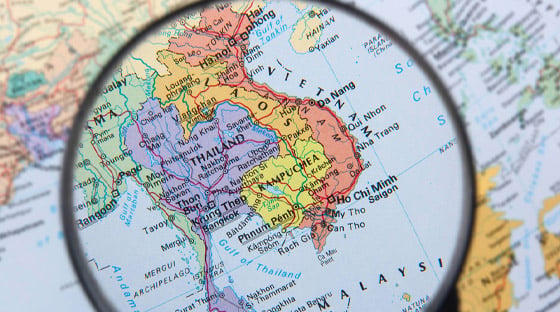
Overview
Outsource to Asia Now
Software Outsourcing in South and Southeast Asia
Nowhere in the world has a more mature outsourcing sector or a deeper talent pool than Asia, where you can find top-quality engineering skills for 30-70% less than you’d expect to pay in rival markets.
In today’s marketplace, the imperative for quick on-boarding and continuity of retention – with a partner who has experience working with Western clients – makes South and Southeast Asia not just a more affordable option but almost a necessary alternative.
The region’s innovation performance over the past decade has been dynamic, closing the gap with Latin America and Eastern Europe. That’s just one of the reasons why we’re recommending that clients looking for a software development outsourcing partner put South & Southeast Asia at the top of their list.
The Numbers Don't Lie
Outsourcing to South and Southeast Asia through Accelerance has proven highly successful, with a widespread presence and access to thousands of skilled developers in the region.
100
%
Customer Satisfaction
100% of customers enjoy collaborating with our Asian partners.
19
Certified Partners
Accelerance has a network that includes 19 Certified Partners in Asia.
12
Country Locations
Accelerance's Certified Partners spread across 12 countries throughout Asia.
14
k+
Developers
Accelerance Partners have over 14,000 developers across Asia.
Key Benefits of Outsourcing to Asia
In South and Southeast Asia, you will find:
-
Considerable Cost Savings
Considerable Cost Savings
Chat with UsCountries such as India and the Philippines present an attractive option for businesses aiming to develop high-quality software at a fraction of the cost compared to many Western countries. The lower developer rates in these regions, coupled with a vast pool of skilled professionals, offer a cost-effective solution without compromising on expertise. This cost advantage allows businesses to allocate resources strategically, ensuring optimal project outcomes while adhering to budget constraints. Moreover, the global reputation of Indian and Filipino developers for proficiency in diverse technologies further enhances the overall value proposition, making these countries sought-after destinations for outsourcing software development projects.

-
A Skilled Workforce
A Skilled Workforce
Let's TalkIndia, in particular, stands out with its vast reservoir of highly skilled and qualified IT professionals, contributing significantly to the country's prominence in the global technology landscape. The workforce's proficiency spans a diverse spectrum of IT domains, showcasing a rich blend of expertise in software development, system architecture, and emerging technologies. On the other hand, Vietnam distinguishes itself with a robust emphasis on STEM (Science, Technology, Engineering, and Mathematics) education. This strategic focus ensures that developers from Vietnam receive comprehensive training in the latest technologies and programming languages, positioning them as adept innovators capable of navigating the dynamic demands of the digital era. The combination of India's established talent pool and Vietnam's dedication to STEM education creates a compelling narrative for businesses seeking a versatile and well-equipped workforce for their software development endeavors.

-
Flexible Scaling
Flexible Scaling
Get In TouchIn the dynamic landscape of South and Southeast Asia, software firms have honed the art of providing agile and adaptable resource scaling tailored to project requirements. This flexibility enables businesses to swiftly adjust the size of their development teams, ensuring an optimal alignment of resources with the distinct demands of each project phase. Whether facing a surge in project complexity or experiencing streamlined requirements, this capacity to scale up or down becomes a strategic advantage. It not only empowers businesses to efficiently manage costs by allocating resources where needed but also ensures that the development team remains finely tuned to the evolving dynamics of the project lifecycle. This collaborative and responsive approach to resource scaling in the region enhances project agility and positions South and Southeast Asia as an ideal destination for businesses seeking tailored solutions and efficient resource utilization in their software development ventures.

-
A Proven Track Record
A Proven Track Record
Chat with UsIndia pioneered software outsourcing over 30 years ago, while Southeast Asia has become a powerhouse of software development, building on the region’s expertise in business process outsourcing and contact center operations. Our partners in the region have successfully delivered software projects for clients all over the world, earning the region a reputation for reliability and quality in software development.
Now is the time to look at Asia seriously again. You get the talent pool, the speed to ramp up, the resources, and the white-glove attention – a smart CTO would be looking to get a jump on the market.
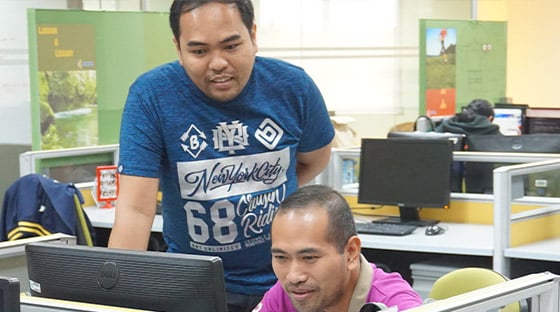
-
Time Zone Advantages
Time Zone Advantages
Talk to UsThe concept of distance takes on a strategic dimension in the realm of software development, emerging as a virtue in the form of a "follow the sun" model. This innovative approach capitalizes on global time zone differences, particularly with outsourcing partners in Asia. In this model, the development cycle benefits from a continuous, round-the-clock deployment strategy. As the day concludes in one region, the developed code seamlessly transitions to another where an outsourcing partner, often located in Asia, takes the helm for thorough overnight testing. This harmonious collaboration ensures that the software undergoes comprehensive scrutiny and refinement, leveraging the time difference to accelerate the development lifecycle. The result is a synchronized and efficient workflow that maximizes productivity, accelerates project timelines, and ultimately contributes to the seamless and continuous deployment of high-quality software solutions.

-
Government Support and Infrastructure
Government Support and Infrastructure
Get StartedThe governments of South and Southeast Asian countries have demonstrated a proactive acknowledgment of the paramount significance of the IT industry in fostering economic growth and innovation. In line with this recognition, these governments have taken comprehensive measures to actively support and promote the thriving IT ecosystem within their borders. This multifaceted approach encompasses the formulation of favorable policies tailored to incentivize IT-related activities, offering a conducive regulatory framework for businesses to flourish. Additionally, strategic investments in cutting-edge infrastructure, including high-speed internet connectivity and advanced technology parks, signify a commitment to providing a robust foundation for technological advancements. The establishment of these technology parks serves as a testament to the region's dedication to creating concentrated hubs that foster collaboration, knowledge exchange, and the growth of IT businesses. Collectively, these initiatives by South and Southeast Asian governments aim to propel their nations into the forefront of the global IT landscape, attracting both domestic and international stakeholders and contributing to the continued evolution of the IT sector in the region.
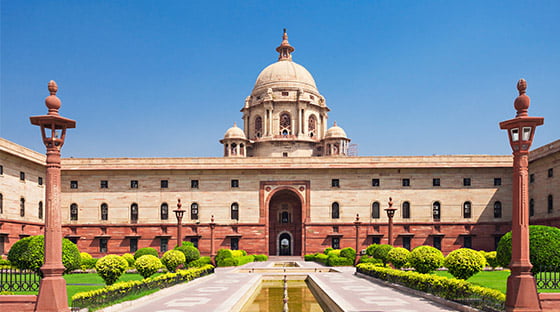
-
Cultural Compatibility
Cultural Compatibility
Talk with UsThe proficiency in the English language exhibited by the workforce in South Asia, with a particular emphasis on India, reaches commendable levels. This heightened language compatibility serves as a pivotal factor in diminishing communication barriers and cultivating a conducive environment for effective collaboration between onshore and offshore teams. The shared linguistic proficiency not only facilitates seamless communication but also promotes a harmonious working relationship, enabling both onshore and offshore teams to collaborate with clarity and precision. This linguistic synergy contributes significantly to the success of cross-border collaborations, ensuring that communication hurdles are minimized and collaborative efforts are streamlined for optimal efficiency and productivity.

-
Technological Expertise
Technological Expertise
Let's TalkAcross the span from Pakistan to the Philippines, countries in South and Southeast Asia have demonstrated a swift and adept embrace of emerging technologies. This dynamic region has not only adopted but excelled in the realms of artificial intelligence, machine learning, blockchain, and various other cutting-edge domains. The prowess of outsourcing firms in these areas signifies a depth of expertise, offering businesses unparalleled access to innovative solutions at the forefront of technological advancements. The proficiency in emerging technologies within the South and Southeast Asian outsourcing landscape positions the region as a strategic hub for enterprises seeking to leverage state-of-the-art solutions and stay at the forefront of the rapidly evolving digital landscape.

Considerable Cost Savings
Countries such as India and the Philippines present an attractive option for businesses aiming to develop high-quality software at a fraction of the cost compared to many Western countries. The lower developer rates in these regions, coupled with a vast pool of skilled professionals, offer a cost-effective solution without compromising on expertise. This cost advantage allows businesses to allocate resources strategically, ensuring optimal project outcomes while adhering to budget constraints. Moreover, the global reputation of Indian and Filipino developers for proficiency in diverse technologies further enhances the overall value proposition, making these countries sought-after destinations for outsourcing software development projects.

A Skilled Workforce
India, in particular, stands out with its vast reservoir of highly skilled and qualified IT professionals, contributing significantly to the country's prominence in the global technology landscape. The workforce's proficiency spans a diverse spectrum of IT domains, showcasing a rich blend of expertise in software development, system architecture, and emerging technologies. On the other hand, Vietnam distinguishes itself with a robust emphasis on STEM (Science, Technology, Engineering, and Mathematics) education. This strategic focus ensures that developers from Vietnam receive comprehensive training in the latest technologies and programming languages, positioning them as adept innovators capable of navigating the dynamic demands of the digital era. The combination of India's established talent pool and Vietnam's dedication to STEM education creates a compelling narrative for businesses seeking a versatile and well-equipped workforce for their software development endeavors.

Flexible Scaling
In the dynamic landscape of South and Southeast Asia, software firms have honed the art of providing agile and adaptable resource scaling tailored to project requirements. This flexibility enables businesses to swiftly adjust the size of their development teams, ensuring an optimal alignment of resources with the distinct demands of each project phase. Whether facing a surge in project complexity or experiencing streamlined requirements, this capacity to scale up or down becomes a strategic advantage. It not only empowers businesses to efficiently manage costs by allocating resources where needed but also ensures that the development team remains finely tuned to the evolving dynamics of the project lifecycle. This collaborative and responsive approach to resource scaling in the region enhances project agility and positions South and Southeast Asia as an ideal destination for businesses seeking tailored solutions and efficient resource utilization in their software development ventures.

A Proven Track Record
India pioneered software outsourcing over 30 years ago, while Southeast Asia has become a powerhouse of software development, building on the region’s expertise in business process outsourcing and contact center operations. Our partners in the region have successfully delivered software projects for clients all over the world, earning the region a reputation for reliability and quality in software development.
Now is the time to look at Asia seriously again. You get the talent pool, the speed to ramp up, the resources, and the white-glove attention – a smart CTO would be looking to get a jump on the market.

Time Zone Advantages
The concept of distance takes on a strategic dimension in the realm of software development, emerging as a virtue in the form of a "follow the sun" model. This innovative approach capitalizes on global time zone differences, particularly with outsourcing partners in Asia. In this model, the development cycle benefits from a continuous, round-the-clock deployment strategy. As the day concludes in one region, the developed code seamlessly transitions to another where an outsourcing partner, often located in Asia, takes the helm for thorough overnight testing. This harmonious collaboration ensures that the software undergoes comprehensive scrutiny and refinement, leveraging the time difference to accelerate the development lifecycle. The result is a synchronized and efficient workflow that maximizes productivity, accelerates project timelines, and ultimately contributes to the seamless and continuous deployment of high-quality software solutions.

Government Support and Infrastructure
The governments of South and Southeast Asian countries have demonstrated a proactive acknowledgment of the paramount significance of the IT industry in fostering economic growth and innovation. In line with this recognition, these governments have taken comprehensive measures to actively support and promote the thriving IT ecosystem within their borders. This multifaceted approach encompasses the formulation of favorable policies tailored to incentivize IT-related activities, offering a conducive regulatory framework for businesses to flourish. Additionally, strategic investments in cutting-edge infrastructure, including high-speed internet connectivity and advanced technology parks, signify a commitment to providing a robust foundation for technological advancements. The establishment of these technology parks serves as a testament to the region's dedication to creating concentrated hubs that foster collaboration, knowledge exchange, and the growth of IT businesses. Collectively, these initiatives by South and Southeast Asian governments aim to propel their nations into the forefront of the global IT landscape, attracting both domestic and international stakeholders and contributing to the continued evolution of the IT sector in the region.

Cultural Compatibility
The proficiency in the English language exhibited by the workforce in South Asia, with a particular emphasis on India, reaches commendable levels. This heightened language compatibility serves as a pivotal factor in diminishing communication barriers and cultivating a conducive environment for effective collaboration between onshore and offshore teams. The shared linguistic proficiency not only facilitates seamless communication but also promotes a harmonious working relationship, enabling both onshore and offshore teams to collaborate with clarity and precision. This linguistic synergy contributes significantly to the success of cross-border collaborations, ensuring that communication hurdles are minimized and collaborative efforts are streamlined for optimal efficiency and productivity.

Technological Expertise
Across the span from Pakistan to the Philippines, countries in South and Southeast Asia have demonstrated a swift and adept embrace of emerging technologies. This dynamic region has not only adopted but excelled in the realms of artificial intelligence, machine learning, blockchain, and various other cutting-edge domains. The prowess of outsourcing firms in these areas signifies a depth of expertise, offering businesses unparalleled access to innovative solutions at the forefront of technological advancements. The proficiency in emerging technologies within the South and Southeast Asian outsourcing landscape positions the region as a strategic hub for enterprises seeking to leverage state-of-the-art solutions and stay at the forefront of the rapidly evolving digital landscape.

Popular Countries to Outsource Software Development
Your go-to outsourcing destinations in the Asian region.
Through our detailed analysis of the region, we have concluded that these countries have a HIGH outsourcing readiness score.

Vietman
Learn More
The Philippines
Learn More
India
Learn More
Malaysia
Learn More
Bangladesh
Learn More
Nepal
Learn More
Pakistan
Learn More
Sri Lanka
Learn MoreSouth and Southeast Asia Region Assessment
The Accelerance team personally travels onsite to vet prospective software development partners and teams to ensure only the highest quality partners are certified into the Global Network.

Accelerance Due Diligence
Accelerance lives by the principle that a successful outsourcing partnership must include in-person, on-site meetings – necessitating travel to the service provider’s location to build a collaborative relationship, understand and appreciate the culture, and transfer knowledge.
Every certified partner in the Accelerance Global Network has been comprehensively assessed and vetted on-site by our experienced team of outsourcing analysts.
Where possible, we travel with our clients to introduce them personally to a new outsourcing partner, and to support them through the onboarding process. However, if you are unable to make an offshore visit in person, our team is able to provide insights and advice based on their own professional, first-hand experience.
Rest assured we've confirmed the quality of any firm we recommend. An on-site visit is required to join our global certified developer network.
South & Southeast Asia Region Guide to Software Outsourcing
Dive in to explore Bangladesh, India, Nepal, Pakistan, Sri Lanka, Malaysia, Thailand, the Philippines, and Vietnam.
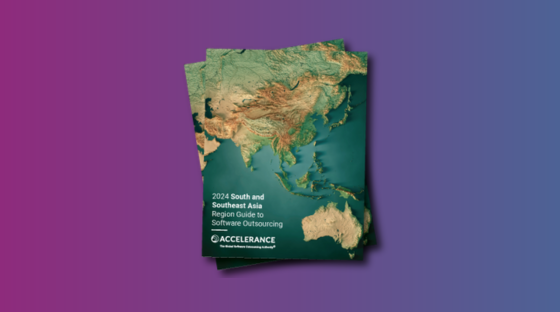
Feeling the pain of the tech talent shortage?
Check out our "catalog" of skilled, affordable software development in nine South & Southeast Asia destinations.
Explore your options for deeply skilled tech talent at cost savings of up to 30% over US developer rates. South & Southeast Asia have received an influx of work as war in Eastern Europe and rising developer rates in Latin America spur North American firms to look to the East.
Our latest guide provides country-specific analysis including:
Download Your Asia Guide
Explore your options for deeply skilled tech talent at cost savings of up to 30% over US developer rates. South & Southeast Asia have received an influx of work as war in Eastern Europe and rising developer rates in Latin America spur North American firms to look to the East.
Our latest guide provides country-specific analysis including:
- Quantified developer availability and example rates from our certified network
- First-hand assessment of specialized expertise and digital capabilities
- Political and business risk evaluation including geopolitical factors
- Economic considerations including the outlook for inflation and growth
- The current state of cybersecurity and efforts to combat growing threats
- Thorough analysis for software outsourcing readiness across nine countries
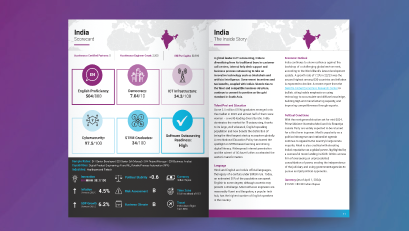
Get expert insights.
You'll get expert insights into the guide's locations, meticulously researched across 18 dimensions using independent industry sources. We'll also share exclusive perspectives from our certified development network.
Dive in to explore Bangladesh, India, Nepal, Pakistan, Sri Lanka, Malaysia, Thailand, Philippines, and Vietnam.
Our guide's expert insights are just a click away.
Ready to outsource to South and Southeast Asia?
Contact Accelerance for smooth help in locating a reliable and high-quality certified partner in South and Southeast Asia.
